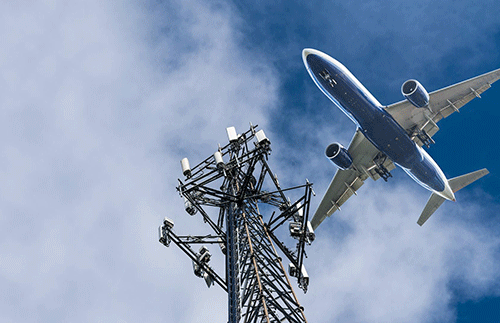The Communications Regulatory Authority of Namibia (Cran) and Namibia Civil Aviation Authority (NCAA) recently signed an agreement in Windhoek.
The new agreement is an extension of a previous agreement where the two institutions seek to create a framework of coordination and collaboration on Aeronautical Radio Frequency Spectrum and Radio Telephony Licences (restricted and general) for pilots, flight engineers and air traffic service personnel.
This is in accordance with the Standards and Recommended Practices (SARPs) of the International Civil Organisation (ICAO) and for approval of relevant facilities.
In July 2020, Cran and NCAA signed an agreement as a result of aligned desires that are well-positioned to create a framework of coordination and collaboration on the award of Aeronautical Radio Frequency Spectrum, the issuance of Aeronautical Radio Station Licences and Radio Telephony Licences for pilots, flight engineers and air traffic service personnel in accordance with and as prescribed by national and international standards, practices and regulations for the safety and security of civil aviation in Namibia.
The agreement asserts that the NCAA’s Personnel Licensing Department (PEL) shall be assigned the responsibility of overseeing aviation radio telephony training and examinations, including the appointment and oversight of qualified personnel to carry out training and examinations.
Thereafter, NCAA’s PEL shall issue a recommendation that will be submitted to Cran for the purpose of issuing an aviation radio telephony certificate together with the examination test results.
Cran shall issue aeronautical frequency spectrum and radiotelephony licences to an applicant in line with the prescribed licensing procedures and review the Frequency Band Plan for aeronautical radio frequency spectrum in accordance with the Final Acts of the International Telecommunications Union (ITU) Word Radiocommunication Conference (WRC), and publish for public record.
Additionally, Cran will issue Type Approval Certificates to importers of avionic communications equipment in line with the Regulations in respect of Type Approval and Technical Standards for Telecommunications Equipment General Notice No. 22, Government Gazette No. 5659, dated 30 January 2015, as amended.
Cran will also ensure 5G implementation secure tilt down and precaution zones are applied at airports.
The agreement shall be jointly reviewed every three years by Cran and NCAA to measure compliance, and share concerns, as well as to deliberate and introduce any possible new measures to aid in the further facilitation and implementation of the agreement.
Cran was established in terms of Section 4 of the Communications Act (No. 8 of 2009) to regulate the telecommunications services and networks, broadcasting and postal services, as well as the use and allocation of radio spectrum in Namibia, whereas the NCAA was established in terms of Section 8 of the Civil Aviation Act (No. 6 of 2016) to regulate civil aviation safety and security.



